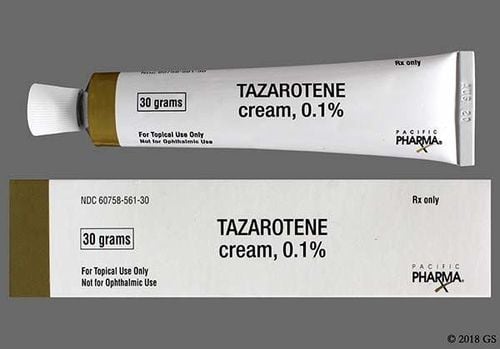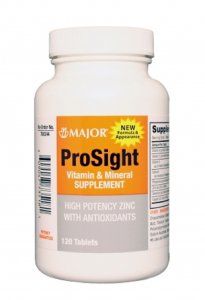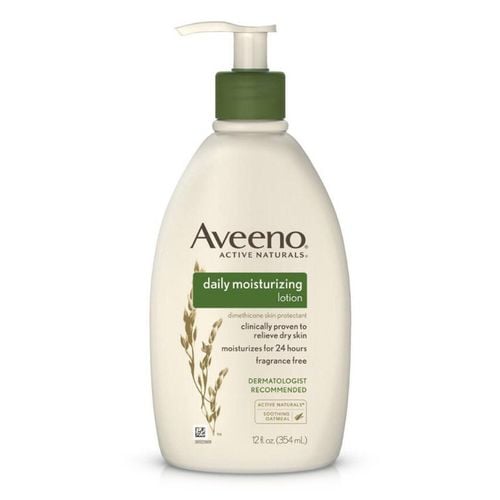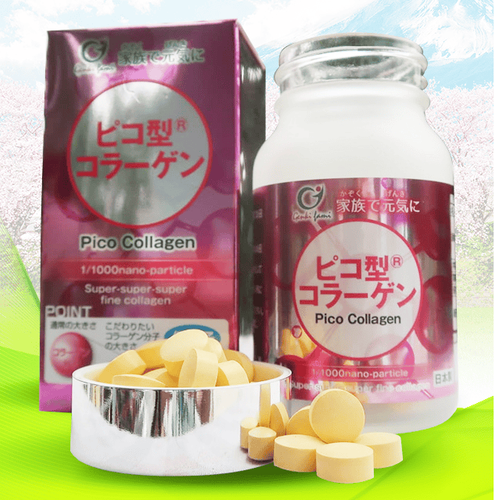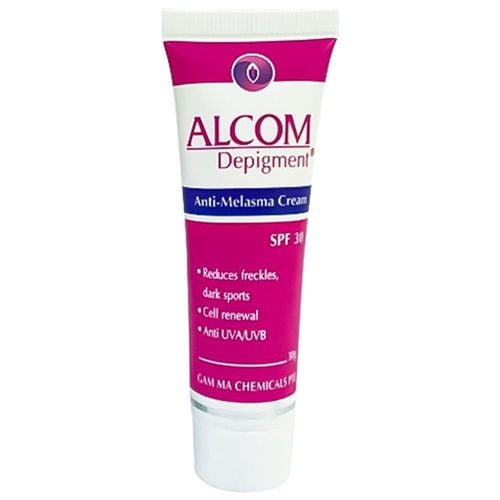This is an automatically translated article.
Skin aging is a common clinical condition in most people characterized by wrinkles, changes in skin pigmentation, and vasodilation. Retinoids are the collective name for vitamin A (retinol) and derivatives with a structure or function similar to vitamin A, widely used to combat skin aging. The anti-aging effects of topical retinoids have been approved by the US Food and Drug Administration (FDA).
1. What is skin aging?
Photoaging is a skin condition characterized by a chronic inflammatory response to UV rays. The disease manifests as wrinkles, changes in skin pigmentation and vasodilation.In which, UVA rays play an important role in causing skin aging, especially it can pass through ordinary glass doors. Therefore, we can prevent photo-aging by:
Using sunscreen regularly. Wear closed clothes, wear a mask when going out. Avoid going out during times of high UV rays.
2. Anti-Aging Retinoids
2.1. What are retinoids? Retinoids are the collective name for vitamin A (retinol) and derivatives that are structurally or functionally similar to vitamin A. Retinoids are divided into 3 generations with 2 forms of topical and oral.
Retinoids are one of the most popular ways to keep skin young. They were discovered in the early 1970s. Retinoids were first prescribed to treat acne. Currently, it is used to combat skin aging, psoriasis, and other skin conditions.
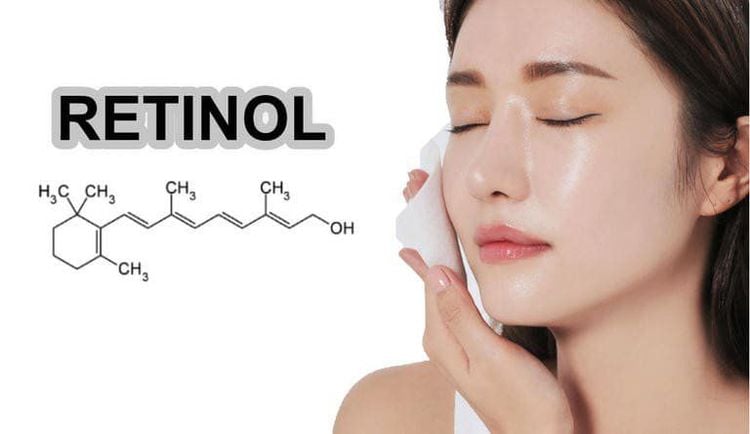
Retinoids là tên gọi chung cho các phái sinh của Vitamin A được sử dụng trong các sản phẩm chăm sóc da
2.2. How Retinoids Work Retinoids don't just slough off the top layer of your skin cells like a fibrous layer. It also triggers your body to make more collagen, a special protein in skin, muscles, and bones. It's what keeps your skin elastic and firm. As a result, your skin has fewer wrinkles.
2.3. Are natural or synthetic retinoids better? There are natural and synthetic retinoids. Natural retinoids come directly from natural vitamin A. Synthetic retinoids are man-made. Both of these activate receptors in your skin.
However, synthetic retinoids don't activate as many of the same receptors in the skin as natural retinoids, so they tend to be less irritating. But, that also means they may not work as well as natural retinoids.
2.4. Types of retinoids Retinoids are available in a variety of forms, including creams, gels, and liquids. Gels are often stronger than creams, foams, and liquids and are often prescribed to treat acne. Creams are often a good choice for aging skin.
Retinoid products are manufactured in a variety of concentrations, including 0.025%, 0.05%, and 0.1%. A higher concentration will have a better effect, but it can also cause more side effects.
2.5. Retinoids reduce wrinkles Because retinoids help your skin make more collagen, they smooth out wrinkles in the skin. They also stimulate new blood vessels, giving your skin a more rosy glow. Retinoids also help fade age spots and smooth rough patches on the skin. Tretinoin (Retin-A) is a popular choice for treating aging skin.
2.6. Do retinoids require a prescription? You can buy some retinoid products, like adapalene (Differin), at stores. But you need a prescription for stronger retinoids like tretinoin (Retin-A).
You can also buy retinol at the store, which your body then converts into retinoids. However, their effects aren't as strong as retinoids, so they're less likely to make your skin red or itchy. And they take longer to make your skin look better.
2.7. How to use Retinoids Retinoids are used at night, by taking a small amount (about the size of a pea) over your entire face and massaging it in. Excessive use may cause itching, redness, or dryness of the skin.
You should not use retinoids during the day. Because it breaks down in the sun. That's why you should apply them at night before going to bed. Retinoids do not increase your risk of sunburn. But it's always better to always use sunscreen, whether you're using retinoids or not.
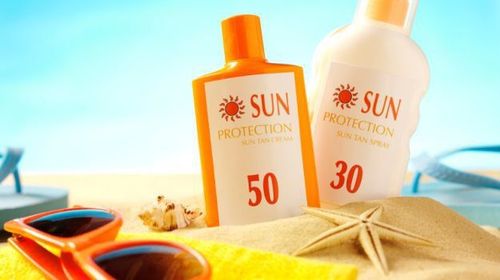
Nên sử dụng kem chống nắng mỗi ngày ngay cả khi bạn không sử dụng retinoids
2.8. Side effects of retinoids Retinoids can cause dryness, redness, itching, or peeling of the skin, which is normal. But these conditions usually disappear after a period of use. Your doctor may ask you to use them every other day or just once a week at the start until you can use them every night. If you continue to have the above problems, stop and talk to your doctor.
2.9. Are retinoids safe? In addition to the possible short-term side effects listed above, retinoids are safe for most people. But retinoids have not been tested on pregnant women. Therefore, you should not use them during pregnancy or while breastfeeding.
2.10. How long will it take for retinoids to take effect? Don't expect quick results when you start using retinoids. It may take 3 months before you see changes in your skin. It may take 6 months to a year for best results. It is important that you be patient.
3. Effectiveness of using retinoids against skin aging
3.1. The effectiveness of topical retinoids Tretinoin and tazarotene have been recognized by the US Food and Drug Administration (FDA) as effective in the treatment of photo-aging skin, they help improve small wrinkles and brighten the skin. The mechanism of these drugs is to promote cell differentiation and extracellular matrix synthesis (increase in hyaluronic acid...). After about 3-6 months of continuous daily use of topical retinoids, the effects of topical retinoids will be visible. medicine. However, the effect may be lost if you stop using the drug. Some experts suggest that you can use retinoids long-term in low concentrations and reduce the frequency of application. Histopathological observation shows that, after applying retinoids, the following phenomena will occur:
stratum corneum compaction squamous hyperplasia Dispersion of melanin granules Increase collagen Increase blood vessels. Therefore, your skin will be smooth, ruddy, uniform in color and reduce wrinkles. You should start applying retinoids from a low concentration to limit the irritating effects of the drug. Tretinoin 0.025% and 0.05% are considered the best choice for photoaging skin treatment. Some studies have shown that tazarotene 0.1% is as effective as tretinoin 0.05% and improves results more quickly. Another study found that the effectiveness of tretinoin 0.05% and adapalene 0.3% in treating skin aging over 24 weeks was similar.
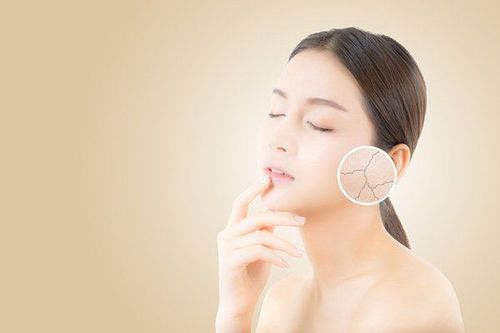
Retinoids dạng bôi giúp cải thiện nếp nhăn và làm sáng da hiệu quả
3.2. Efficacy of oral retinoids Oral retinoids are used in various diseases such as:
Acne Psoriasis Skin T-lymphoma... Oral retinoids have absolute contraindications for pregnant and lactating women. . Some other relative contraindications to the drug are:
Leukopenia Moderate and severe hyperlipidemia Liver and kidney dysfunction Hypothyroidism Suicide intention.. Side effects of such oral retinoids are: Fetal malformations, dry skin, lips, scabs, hair loss...
Some experts find that when treating acne with oral isotretinoin, it not only improves acne, but also helps soften skin, brighter and more radiant. Therefore, there are many studies on the effectiveness of oral retinoids in treating photo-aging skin aging. The results of studies show that the effect of oral retinoids is not higher than that of topical retinoids in the treatment of skin aging.
If you have a need for consultation and examination at Vinmec Hospitals under the nationwide health system, please book an appointment on the website for service.
Please dial HOTLINE for more information or register for an appointment HERE. Download MyVinmec app to make appointments faster and to manage your bookings easily.
Reference source: webmd.com



